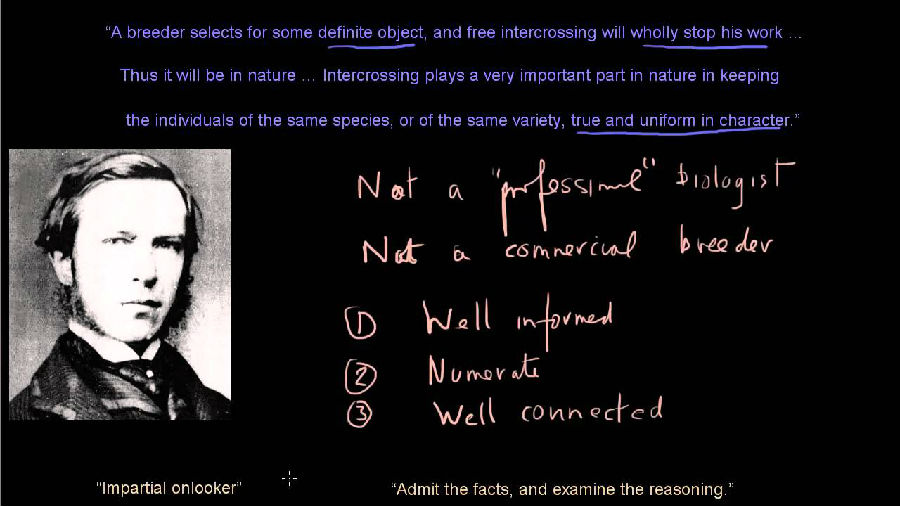Even so, and to the unending exasperation of his supporters, Darwin not only insisted that all change was gradual, but in nearly every edition of Origin he stepped up the amount of time he supposed necessary to allow evolution to progress, which pushed his ideas increasingly out of favor. "Eventually," according to the scientist and historian Jeffrey Schwartz, "Darwin lost virtually all the support that still remained among the ranks of fellow natural historians and geologists."

Ironically, considering that Darwin called his book On the Origin of Species, the one thing he couldn't explain was how species originated. Darwin's theory suggested a mechanism for how a species might become stronger or better or faster — in a word, fitter — but gave no indication of how it might throw up a new species. A Scottish engineer, Fleeming Jenkin, considered the problem and noted an important flaw in Darwin's argument. Darwin believed that any beneficial trait that arose in one generation would be passed on to subsequent generations, thus strengthening the species.











